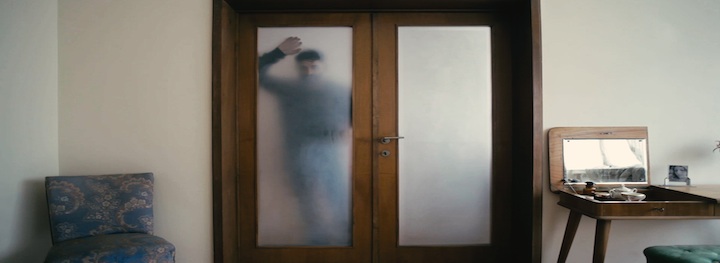Art & Art History
Few Were Happy with Their Condition

Gallery 400
400 South Peoria Street, Chicago, IL 60607
Dan Acostioaei, József Bartha, Irina Botea, Razvan Botis, Claudiu Cobilanschi, Ștefan Constantinescu, Alexandra Croitoru, Cristina David, Bogdan Gîrbovan, Alex Mirutziu, Ciprian Mureșan, Vlad Nancă, Mircea Nicolae, Cristi Pogăcean, Ștefan Sava and Mona Vatamanu & Florin Tudor.
Few Were Happy with Their Condition, curated by Olga Stefan, explores life in post-communist Romania, a time of hope and disappointment, in which the transition seems to continue forever and during which neoliberalism and communist-style corruption and methodologies clash and mirror each other constantly.
In 1989 the Romanian Revolution—a period of violent civil unrest throughout the country—aligned with revolutions unfolding the same year in several Warsaw Pact countries, including Bulgaria, Czechoslovakia, East Germany, Hungary, Poland, and the Soviet Union. The Romanian Revolution was the last removal of a Communist regime in a Warsaw Pact country during the events of 1989 and the only one that violently overthrew a country’s government and executed its leader.
Few Were Happy with Their Condition focuses on a period of time when the desire for freedom materialized into economic uncertainty typical of the capitalist system, as well as profound corruption at all levels of society that continues to this day. The weight of the communist past, with its crimes and the oppression of the public sphere on the one hand, and the poverty and instability of the post-communist era on the other, has resulted in a trauma that permeates human activity and emotion and is highly visible in artistic production. Focusing on the contemporary mediums of video, film, and photography, Few Were Happy… reflects the feelings of discontentment within Romania’s contemporary society, in a world that is still torn between the communist and post-communist periods, affected psychologically by its history while attempting to transition into an uncertain, yet longed-for future. The artists in the exhibition, part of a new generation still trying to carve a space for debate and critical analysis in art and life, position themselves against the nation’s past and also the West, thus attempting to create a new contemporary identity.
Few Were Happy with Their Condition presents a variety of works, from analog to digital photography, short films, and documentaries, to moving image installations, encouraging various forms of reception and relation to the image. Through the use of these contemporary media, the artists in Few Were Happy reflect the need for immediacy and urgency in expression and the technology and preoccupations of our time. Part of a new generation of artists that started their careers in the late 90s, they look outward with critiques of society, the political climate, and social injustice; backward toward the country’s dark past; but also inward, with personal narratives and reflections on the human condition.